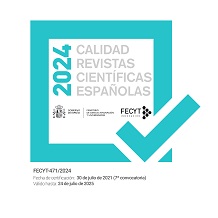Nursing students' satisfaction in Problem-Based Learning
Supporting Agencies
- No
Abstract
Introduction: The objective of this research was used to evaluate the effect of Problem-Based Learning in the Nursing students' satisfaction.Material and Methodology: A descriptive transversal study. The task was conducted by 134 second-year Nursing students at the University of Valladolid. Scale satisfaction of the University of Colima (Mexico) was administered under PBL implementation.SPSS was used for data analysis and the content analysis on the participants’ responses.
Results: Overall the participants described the contents of the clinical case as engaging, effective, practical and varied. 55% of students revealed their preference for traditional methodology compared to PBL. 78% liked this new methodology. Students’ perception of active learning through PBL showed a high level of motivation and satisfaction in regards to content, the tutorial process, the tutor and the students’ role; whereas the time assigned and the major workload is what least satisfied them. Nevertheless, satisfaction in general was high.
Conclusion: The PBL methodology reported successful results according to nursing students’ opinions. It was reported that PBL improves communication and the students’ feedback is implemented. There is a correlation between the teaching and learning process not only in evaluation assessment but also in personal treatment in respect to the benefits to each other.
Downloads
-
Abstract926
-
PDF (Español (España))726
-
PDF726
The works published in this magazine are subject to the following terms:
1. The Publications Service of the University of Murcia (the publisher) preserves the copyright of the published works, and encourages and allows the reuse of the works under the license for use stated in point 2.
© Servicio de Publicaciones, Universidad de Murcia, 2011 (© Publications Service, University of Murcia, 2011)
2. The works are published in the electronic edition of the journal under Creative Commons Reconocimiento-NoComercial-SinObraDerivada 3.0 España(texto legal) “ a Attribution-NonCommercial-NoDerivatives 3.0 Spain license (legal text)”. They can be copied, used, broadcasted, transmitted and publicly displayed, provided that: i) the authorship and original source of their publication (journal, publisher and URL) are cited; (ii) are not used for commercial purposes; iii) the existence and specifications of this license is mentioned.
3. Conditions of self-archiving. Authors are allowed and encouraged to electronically disseminate the pre-print (pre-reviewed ) and / or post-print (reviewed and accepted for publication) versions of their works prior to publication, as it ensures a wider circulation and dissemination which may lead to a possible increase in its mention and a higher scope among the academic community. RoMEO color: green.












